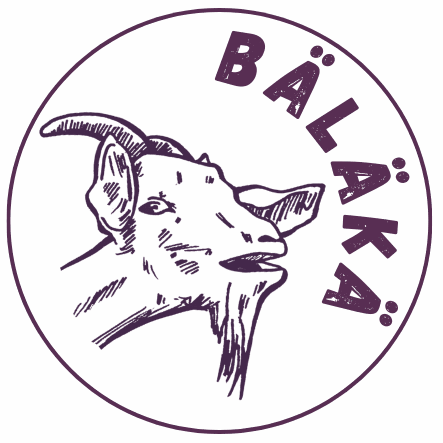Barriers
We would like to make the camp accessible to as many people as possible and are aware that we, as the organizing team, certainly represent only a small cross-section of perspectives. That is why we would like to be transparent about the things we have considered. At the same time, we would be very happy if you could bring other important things to our attention, if you notice something or if you need something else for your own visit. Please feel invited to reach out at: info[at]baelaekae.org
Parking:
It is not possible to park directly at the camp site. However, it is possible to stop for a short period of time to load and unload cars directly at the site and then park the car in the village (approx. 1 km away). If you are arriving by public transportation, a shuttle can also be organized (see Arrival). The nearest train stations are equipped with elevators.
Terrain:
The site itself is partly on green farmland and partly on meadow. There are several dirt roads on the site leading to the sanitary facilities, the workshop tents, the information point, the kitchen, and the barrier-free sleeping tent. We will make sure that floor panels are laid out on particularly uneven areas. However, there are not enough of these to cover the entire camp paths.In addition, the paths may become muddy if there is heavy rain.
Site plan and signage:
An up-to-date camp plan will be available at the information point and other locations on the site.
We will signpost the locations on the camp. We will also try to provide signposts along the paths.
Barrier-free sleeping tent and seating/lying areas in the workshop tents:
We will set up an SG tent equipped with 10 camp beds. This will be located in close proximity to the barrier-free washroom and toilet and will be accessible via the dirt paths, which are as level as possible.
The workshop tents will mostly have seating without backrests (straw bales, beer benches). We will organize a small number of camping chairs, but feel free to bring your own if you have one at home. We will also have some sleeping mats and camp beds for the workshop tents so that it is possible to lie down during workshops.
Evening events:
Throughout the week, there will be evening events on the main area, such as film screenings. On Friday, Saturday, and Sunday, there will also be concerts and parties. These will take place about 700 meters away on the Solawi Ackerilla site. A stone-paved dirt road leads there.
Language:
Unfortunately, we are unable to offer sign language interpretation. We are also unable to translate all contributions, but one contribution per slot will be translated from Monday to Wednesday and two contributions per slot from Thursday to Saturday. The main focus will be on English and French translations, but please feel free to contact us if you have other language requirements and we will see what we can do (e.g. with whispered translations) at translation[at]baelaekae.org
We do not expect to be able to offer any contributions in easy language. It will be clearly indicated in which language contributions are made and whether they are translated.
Sanitary facilities:
The toilets are equipped with sinks and there will also be gender-neutral urinals. In addition to the barrier-free washroom and toilet, there will also be a changing table area with a sink and a low-stimulus toilet.
Medication and/or medical devices:
There will be a cooling facility for medication and electricity to which devices can be connected.
Additional sleeping accommodations:
There will be a bed exchange for people who have different sleeping needs than in a tent. However, these accommodations will be in Sehlis, about 2 km away from the camp. This route is a paved path.
Safety:
There will be a safety concept and security measures in place on site. We are located in rural Saxony, so we recommend traveling together! A shuttle can also be organized from the train station via the information point, so you can get to the camp by car.
Awareness:
We are developing an awareness concept, which will be explained in more detail at the information point. Unfortunately, as we have limited space, we cannot set up specific tents for marginalized groups. However, not all tents will be in use at the same time, so these spaces can then be used for other purposes. There will also be retreat areas that can be used as meeting places. In addition, there are separate campsites for FLINTA* and BiPoC*.
